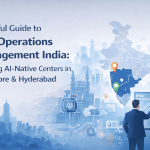"Top GCC Provider in India" - AIM Research
Read more.1. Choosing the Wrong Legal Structure
Selecting between a subsidiary, LLP, branch, or joint venture significantly impacts liability, compliance burden, and tax exposure.
- A Private Limited Company allows 100% foreign ownership and limited liability, but demands director compliance, board routines, and stricter filings.
- An LLP is lighter in governance but may raise concerns around investor appeal and transfer pricing.
- Sansovi assists with entity structuring, ensuring you choose the optimal form based on goals, control, and cost efficiency.
2. Underestimating Permanent Establishment (PE) Risks
Global firms risk creating a PE in India, resulting in up to 40% tax on profits plus filing burdens.
- Activities involving governance, client engagement, or embedded reporting can trigger PE status.
Sansovi’s fix → We draft clear SOPs and reporting lines preventing inadvertent PE formation.
3. Neglecting Transfer Pricing Compliance
Inter-company transactions must reflect arm’s-length pricing. Inaccurate cost-plus margins, unaccounted overheads (e.g. FX losses), or lack of robust FAR analysis are common triggers for audits and adjustments.
Sansovi’s fix → We conduct rigorous FAR analyses, benchmarking, and prepare audit-ready documentation aligned with Indian tax standards.
4. Delaying PAN, TAN & GST Registrations
Registering for PAN, TAN, and GST should commence immediately after incorporation. Delays can lead to penalties, invoicing delays, or blocked services.
Sansovi’s fix → Our onboarding includes tax registration management, ensuring all government IDs are in place pre-launch.
5. Mismanaging Secondment Arrangements
Deploying parent-company staff to India without clear contracts can create Service PE scenarios or trigger GST on imports of services.
Sansovi’s fix → We craft comprehensive secondment agreements, clarify local supervision, and address GST implications.
6. Ignoring State-Level Labor Rules
India’s labor laws vary by state covering Shops & Establishments, PF, ESIC, Professional Tax, POSH, gratuity, and minimum wages. Missteps invite fines and legal scrutiny.
Sansovi’s fix → Our HR compliance engine auto-enforces adherence to all central and state-level regulations, minimizing risk.
7. Overlooking IP & Data Protection
While GCCs frequently own IP, foreign firms often delay IP registration in India. Also, the Digital Personal Data Protection Act (2023) imposes GDPR-style obligations.
Sansovi’s fix → We guide you through IP registration and implement robust data governance frameworks, including DPO appointment and privacy workflows.
8. Missing Out on SEZ/STPI Incentives
Operating from an SEZ or STPI can yield tax holidays, exemptions on imports, and indirect tax benefits. Failing to claim them is a lost advantage.
Sansovi’s fix → We assess geography and model against SEZ/STPI incentives, ensuring you access every financial upside.
9. Overlooking Indirect Tax & Input Tax Credit
Misclassifying exports as zero-rated under GST, or mishandling input tax credits, can cause costly audits.
Sansovi’s fix → Our in-house tax ops optimize GST setup, manage returns (GSTR‑1, 3B), and recover eligible credits seamlessly.
10. Ignoring Ongoing ROC & Tax Filings
Annual ROC filings, Director KYC, statutory audits, income tax returns, and TDS declarations are mandatory. Non‑filing attracts penalties and legal action.
Sansovi’s fix → We manage annual compliance cycles end‑to‑end, sending reminders, filing documents, and delivering seamless audits.
Why Sansovi is Your Trusted GCC Partner
| Feature | Benefit for GCC Clients |
|---|---|
| GCC-as-a-Service | One-stop end-to-end setup legal, tax, HR, IT |
| Local Expertise | In-house tax, legal, labor, and data teams |
| Audit Ready | Pre-audited filings ensure compliance integrity |
| Tech-Enabled | Compliance dashboard offers real-time tracking |
| Scalable Fit | From start-ups to enterprise Global Capability Centres |
Final Takeaway
Establishing a GCC in India is a strategic move but one riddled with legal and tax pitfalls. From entity selection to transfer pricing, labor laws, data compliance, and indirect taxes—these complexities can cumulatively erode ROI or even risk closure.
Sansovi eliminates these pitfalls through its integrated GCC-as-a-Service model, offering local compliance, global governance, and full stack support for a secure, compliant, and efficient launch in India.
Free Compliance Audit – Get a complimentary setup review.
SansoviGCC by GoodWorks is an End-to-End GCC Solutions Platform to build, operate and scale GCCs in India.



